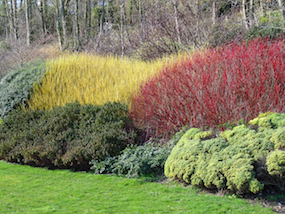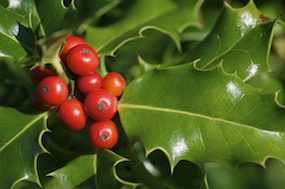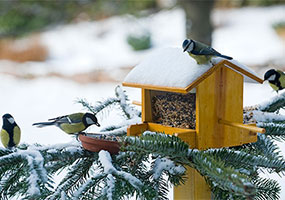Winter Landscapes Can Be Beautiful Too!
Newsletters | 11.01.17
Gray skies and gloomy weather are
the norm for most of the winter
season, but that doesn’t mean your
property needs to look drab. You
can easily add some “cold-weather
flair” to your landscape with the
right plantings this fall.

There are plenty of plants that will
provide attractive colors, shapes
and textures throughout the winter
months. Consider some of the
following:
Evergreens are an obvious choice
for keeping things green over
the winter. Some tried-and-true
favorites include Austrian pine,
Douglas fir, white pine and
arborvitae.
Winter-blooming ornamental
grasses or flowering plants such as
heaths, heathers and witch hazel
are great for adding a splash of
subtle color.
For colorful berries or winter fruit,
try barberry, cotoneaster, holly or
pyracantha.

Eye-catching bark can be found
on birch, Chinese elm, paperbark
maple, shagbark hickory, sweet gum
and sycamore.
Interesting shapes can also add life
to your winter landscape. Beech,
mulberry, weeping cherry and
weeping willow will all stand out.
Regardless of the plants you choose,
it’s important to make sure they can
thrive in the growing conditions on
your property. Also, keep in mind
that they’ll need room to expand as
they mature. With the right plants
in the right places, your landscape
can be a beautiful sight to behold
this winter!
Feed the Birds and Feed Your Soul
The coming of winter and a dormant landscape doesn’t have to diminish our appreciation of the natural world. Although some of your local animals will have moved on to warmer climates or started their hibernation ritual, there will be plenty of beautiful, hungry birds looking for any meal they can find.

You’ll be amazed by how much lively action a simple bird feeder will bring to your backyard this year. Overwintering birds like robins, woodpeckers and doves will appreciate the feast and reward you by adding a fun, energetic presence to an otherwise quiet landscape.
The effects of bird watching can run even deeper. Some sociological studies have found that humans can benefit greatly from having daily exposure to wildlife. Researchers say it creates a deeper connection to nature, which has a calming effect on some people.
